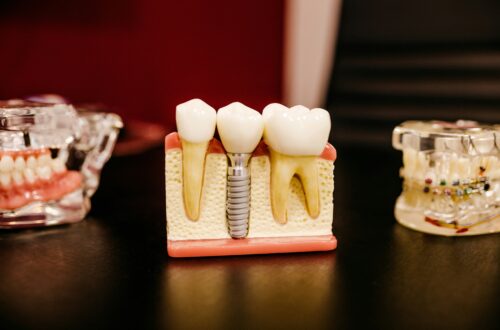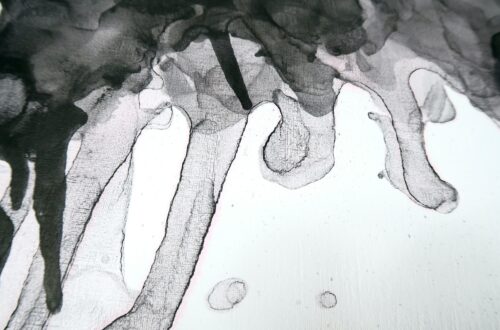Affiliate Disclaimer:
Some of the links on this website are affiliate links, which means that if you click on a link and make a purchase, we may earn a commission at no extra cost to you. This helps support the website and allows us to continue creating content. We only recommend products or services we personally use or genuinely believe will add value to our readers.
Home remedies to cure gingivitis can provide natural and effective ways to reduce gum inflammation, fight bacteria, and promote overall oral health.
Gingivitis can be a real pain in the mouth. Those tender, bleeding gums make brushing and flossing feel like torture.
I’ve been there, and it’s no fun at all.
But here’s some good news, you don’t have to suffer through it or rely solely on expensive dental treatments. There are plenty of natural remedies that can help kick gingivitis to the curb and get your gums back in fighting shape.
I was skeptical about home remedies at first too. But after trying many of these myself and seeing real results, I’m a believer.
Whether you’re dealing with mild gum inflammation or more persistent issues, these natural approaches can complement your regular dental routine and give your gums the TLC they deserve.
Here’s 10 effective home remedies that can help you say goodbye to gingivitis and hello to healthier gums. I’ll share all the details on how to use these remedies, what makes them work, and any potential pitfalls, problems, issues, problems, issues, problems, issues to watch out for.
Home Remedies to Cure Gingivitis, Let’s Begin!
1. Saltwater Rinse
The humble saltwater rinse is a classic remedy that’s stood the test of time. It’s simple, cheap, and surprisingly effective at combating gingivitis.
Salt creates an alkaline environment in your mouth that bacteria just can’t thrive in.
To make your own saltwater rinse, mix 1/2 teaspoon of salt into a cup of warm water. Swish it around in your mouth for about 30 seconds, making sure to get into all the nooks and crannies between your teeth.
The salt helps reduce inflammation and can even provide some pain relief if your gums are particularly sore.
I like to do a saltwater rinse first thing in the morning and again before bed. It leaves my mouth feeling clean and refreshed. Just be careful not to overdo it, too much salt can actually irritate your gums further. Stick to the recommended amount and rinse no more than 2-3 times a day.
One thing I love about saltwater rinses is that you can do them anywhere. I always pack some salt when I travel so I can keep up my oral care routine on the go.
It’s especially helpful after indulging in sugary treats or acidic foods that can aggravate gingivitis.
2. Oil Pulling
Oil pulling is an ancient Ayurvedic technique that’s gained popularity in recent years. I know it sounds a bit interesting, who wants to swish oil around in their mouth?
But trust me, the benefits are worth it.
Coconut oil is particularly effective for oil pulling because of its antimicrobial properties. Here’s how it works: take a tablespoon of coconut oil and swish it around in your mouth for 15-20 minutes.
Yes, it’s a long time, but you can multitask, I usually do it while I’m in the shower or checking my emails.
The oil pulls out toxins and bacteria from your mouth, leaving your gums healthier and your breath fresher. When I first started oil pulling, I was amazed at how clean my teeth felt afterward.
It was like I’d just had a professional cleaning.
One challenge with oil pulling is the texture, some people find it off-putting at first. If that’s you, start with a smaller amount of oil and work your way up.
And whatever you do, don’t swallow the oil when you’re done, spit it out and rinse your mouth thoroughly.
I recommend oil pulling 3-4 times a week for best results. It’s not a replacement for brushing and flossing, but it’s a great addition to your oral care routine.
Just be sure to use organic, unrefined coconut oil for the best results.
3. ProDentim
ProDentim is an innovative probiotic supplement specifically designed to support oral health. It’s been making waves in the dental community, and for good reason.
ProDentim works by introducing useful bacteria into your mouth, helping to restore balance to your oral microbiome.
What sets ProDentim apart is its targeted approach. While many probiotics focus on gut health, ProDentim is formulated specifically for your mouth.
It contains strains of bacteria that have been shown to support oral health, along with other useful ingredients like inulin and malic acid.
To use ProDentim, take one lozenge daily, preferably in the morning. Let it dissolve slowly in your mouth to allow the probiotics to populate your oral cavity.
I like to take mine right after breakfast, it’s become a part of my morning routine.
One thing to keep in mind: while ProDentim can be a great addition to your oral care regimen, it’s not a replacement for brushing and flossing. Think of it as an extra tool in your arsenal against gingivitis.
When I first started using ProDentim, I was skeptical. But after a few weeks, I noticed that my breath was fresher and my gums felt healthier.
It took about a month to see significant improvements, but the results were worth the wait.
4. Aloe Vera
Aloe vera isn’t just for sunburns, it’s also a fantastic remedy for inflamed gums. Its anti-inflammatory properties can help reduce swelling and promote healing.
Plus, it’s antimicrobial, so it helps fight off the bacteria causing your gingivitis.
To use aloe vera for your gums, you’ll want to get your hands on some pure aloe vera gel. Apply a small amount directly to your gums and gently massage it in. You can do this a couple of times a day for best results.
I like to keep an aloe vera plant in my kitchen. When I need some gel, I just break off a leaf and squeeze out the goodness.
It’s fresher than store-bought gel and I know exactly what’s in it.
One thing to watch out for: make sure you’re using pure aloe vera gel, not a product that contains a lot of other ingredients. Some aloe products contain alcohol or other additives that could irritate your gums further.
When I first started using aloe vera on my gums, I was surprised at how soothing it felt. It’s especially nice if your gums are feeling tender or irritated. Just be sure to rinse your mouth well after applying the gel, it doesn’t taste great!
5. Turmeric
Turmeric has been used in traditional medicine for thousands of years, and modern science is starting to catch up to what our ancestors knew all along, this stuff is powerful. The active compound in turmeric, curcumin, has potent anti-inflammatory and antioxidant properties.
To harness the power of turmeric for your gums, you can make a simple paste by mixing turmeric powder with a little water. Apply this paste to your gums and let it sit for a few minutes before rinsing.
I like to do this before bed, just be warned, it can stain your toothbrush yellow!
Another way to use turmeric is to add it to your diet. I love making golden milk, a warm, comforting drink made with turmeric, milk (dairy or plant-based), and a touch of honey.
It’s delicious and great for your overall health, including your gums.
One pro tip: add a pinch of black pepper to your turmeric paste or golden milk. Piperine, a compound in black pepper, can enhance the absorption of curcumin by up to 2000%!
When I first started using turmeric for my gums, I was a bit skeptical. But after a few weeks of regular use, I noticed a significant reduction in gum inflammation.
Plus, my teeth looked whiter, an unexpected bonus!
6. Green Tea
Green tea isn’t just a delicious beverage, it’s also a powerful ally in the fight against gingivitis. It’s packed with antioxidants called catechins, which have been shown to reduce inflammation and fight the bacteria that cause gum disease.
You can enjoy the benefits of green tea simply by drinking it regularly. Aim for 2-3 cups a day for best results.
I like to start my morning with a cup of green tea, it’s a refreshing way to wake up and take care of my gums at the same time.
If you’re not a fan of the taste, you can also use cooled green tea as a mouth rinse. Just brew a cup, let it cool, and use it to rinse your mouth after brushing.
It’s a great alcohol-free choice to commercial mouthwashes.
One thing to keep in mind: green tea does contain caffeine, so if you’re sensitive to it, you might want to opt for a decaf version or limit your intake to earlier in the day. I found that switching to decaf green tea in the afternoon helped me sleep better at night.
When I first started incorporating green tea into my routine, I noticed that my mouth felt cleaner throughout the day. After a few weeks, my gums were less prone to bleeding when I flossed, a clear sign that the inflammation was reducing.
7. Vitamin C
While not a topical remedy like the others we’ve discussed, increasing your vitamin C intake can have a significant impact on your gum health. Vitamin C is crucial for collagen production, which helps keep your gums strong and healthy.
You can boost your vitamin C intake through diet by eating more citrus fruits, berries, and leafy greens. I try to include at least one vitamin C-rich food in every meal.
My favorite is adding a handful of strawberries to my morning oatmeal.
If you’re having trouble getting enough vitamin C through food alone, a supplement might be helpful. Just be sure to talk to your doctor before starting any new supplement regimen.
They can advise you on the right dosage for your needs.
One thing to watch out for: while vitamin C is generally safe, taking too much can cause digestive issues. Stick to the recommended daily intake unless advised otherwise by a healthcare professional.
When I started paying attention to my vitamin C intake, I noticed that my gums felt firmer and were less prone to bleeding. It took a few weeks to see results, but the improvement was noticeable.
Plus, I found I got sick less often, a nice bonus!
8. Tea Tree Oil
Tea tree oil is a natural antibacterial powerhouse. Its potent properties make it excellent for fighting the bacteria that cause gum disease.
I always keep a bottle of tea tree oil in my bathroom cabinet, it’s so versatile for all kinds of health issues.
To use tea tree oil for your gums, you have a couple of options. You can add a drop or two to your regular toothpaste when brushing, or mix a few drops with water to create a mouthwash.
I prefer the mouthwash method, I find it easier to control the concentration.
When I first started using tea tree oil, I noticed a slight tingling sensation in my gums. That’s normal and actually a good sign that it’s working.
After a few weeks of regular use, my gums were noticeably less inflamed and my breath was fresher too.
One word of caution, tea tree oil is for external use only. Be careful not to swallow it.
Also, while it’s generally safe for most people, some may experience allergic reactions.
Always do a patch test first and stop use if you notice any irritation.
I recommend using tea tree oil once a day, preferably at night after brushing. It’s a powerful remedy, so a little goes a long way.
Start with a very diluted solution and gradually increase the concentration as your gums get used to it.
9. Sage Leaf
Sage isn’t just for cooking, it’s also a powerful herb for oral health. It has natural antibacterial properties that can help fight the bacteria causing your gingivitis.
Plus, it can help freshen your breath naturally.
To use sage for your gums, you can make a simple mouthwash. Steep a handful of fresh sage leaves (or a tablespoon of dried sage) in a cup of hot water for about 5-10 minutes.
Strain the liquid and use it as a mouthwash once it’s cooled down.
I like to make a big batch of sage tea and store it in the fridge. That way, I always have some on hand for rinsing.
Just be sure to use it within a few days to confirm freshness.
One potential challenge with sage is its strong flavor, not everyone enjoys it. If you find the taste too intense, you can try mixing it with a bit of honey to make it more palatable.
I actually grew to love the taste over time, it makes my mouth feel clean and refreshed.
When I first started using sage rinses, I noticed an immediate improvement in how clean my mouth felt. Over time, I saw a reduction in gum inflammation and bleeding.
It’s become a staple in my natural oral care routine.
10. Hydrogen Peroxide
Hydrogen peroxide is a common household item that can be a powerful tool in your fight against gingivitis. It works by killing bacteria and helping to remove plaque from your teeth and gums.
To use hydrogen peroxide as a mouthwash, mix equal parts 3% hydrogen peroxide and water. Swish this mixture around in your mouth for about 30 seconds, then spit it out and rinse thoroughly with water.
I like to do this once or twice a week, usually in the evening after brushing.
One word of caution: while hydrogen peroxide is generally safe when used correctly, it can irritate your gums if used too often or in too high a concentration. Always dilute it with water and don’t use it more than a couple of times a week.
When I first tried hydrogen peroxide rinses, I was amazed at how clean my mouth felt afterward. It was like I’d just had a professional cleaning.
Over time, I noticed less plaque buildup and my gums looked healthier.
These home remedies work best when used in conjunction with good oral hygiene practices. Keep up with your regular brushing and flossing, and don’t skip those dental check-ups!
Frequently Asked Questions
What causes gingivitis?
Gingivitis is primarily caused by the buildup of plaque on teeth. This sticky film of bacteria irritates the gums, leading to inflammation.
Poor oral hygiene, smoking, certain medications, and medical conditions like diabetes can increase the risk of developing gingivitis.
How can I tell if I have gingivitis?
Common signs of gingivitis include red, swollen gums that bleed easily when brushing or flossing. You might also notice bad breath or a bad taste in your mouth.
If you’re experiencing these symptoms, it’s best to ask with a dentist for a proper diagnosis.
Can gingivitis be reversed?
Yes, gingivitis is reversible in its early stages. Improving oral hygiene habits, using natural remedies, and getting regular dental cleanings can help reverse gingivitis.
However, if left untreated, it can progress to more serious gum disease.
How long does it take to see results from natural remedies?
The time it takes to see results can vary depending on the severity of your gingivitis and how consistently you use the remedies. Generally, you might start noticing improvements in 2-3 weeks, but it can take several months to see significant changes.
Are these natural remedies safe for everyone?
While these natural remedies are generally safe, it’s always best to ask with a healthcare professional before starting any new treatment, especially if you have allergies or other health conditions. Some remedies, like essential oils, should be used with caution and always diluted properly.
Can oil pulling really improve gum health?
Yes, oil pulling has been shown to reduce plaque and improve gum health in several studies. The mechanical action of swishing oil helps remove bacteria, while the oil itself has antimicrobial properties.
However, it should be used as a complement to, not a replacement for, regular brushing and flossing.
Is it normal for gums to bleed when starting these remedies?
It’s not uncommon for gums to bleed slightly when you first start treating gingivitis, especially when flossing or using new remedies. However, if bleeding continues or gets worse, you should ask with a dentist.
Can diet affect gingivitis?
Yes, diet plays a significant role in gum health. A diet high in sugar and processed foods can contribute to plaque buildup and inflammation.
On the other hand, a diet rich in vitamins C and D, calcium, and antioxidants can help support gum health.
How often should I use these natural remedies?
The frequency of use depends on the specific remedy. Some, like saltwater rinses, can be used daily, while others, like hydrogen peroxide rinses, should only be used once or twice a week.
Always follow the recommended usage for each remedy to avoid irritation or other issues.
Can these remedies replace regular dental visits?
While these natural remedies can be very effective in managing gingivitis, they’re not a replacement for professional dental care. Regular check-ups and cleanings are still essential for maintaining good oral health and catching any potential issues early.
Key Takeaways:
- Saltwater rinses can reduce inflammation and kill bacteria.
- Oil pulling with coconut oil helps remove toxins and bacteria.
- Tea tree oil has potent antibacterial properties useful for gum health.
- Aloe vera can soothe inflamed gums and promote healing.
- Turmeric’s anti-inflammatory properties can combat gingivitis.
- Green tea’s antioxidants can reduce gum inflammation.
- Vitamin C is crucial for maintaining strong, healthy gums.
- ProDentim probiotics can help restore balance to your oral microbiome.
- Sage leaf mouthwash can fight bacteria causing gingivitis.
- Diluted hydrogen peroxide can kill bacteria and remove plaque.




